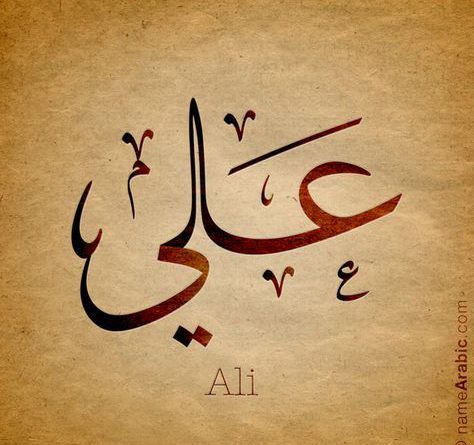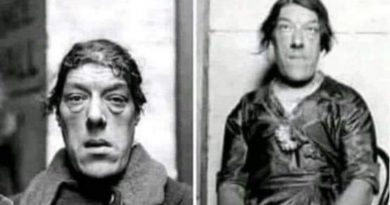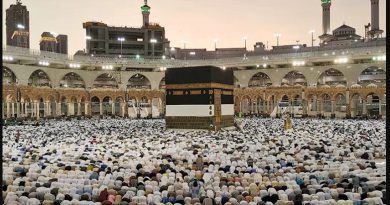FAITH: Ahle-Bait is the Light
Love of Ahle-Bait is incumbent upon every Muslim, those who hate Ahle-Bait goes out of the fold of Islam.
Ahle-Bait are the members of the household of the Prophet (ﷺ). So the family of the Prophet (ﷺ) are: his wives, his children, and Banu Haashim, Banu ‘Abd al-Muttalib and their freed slaves.
Secondly, Allaah has bestowed upon the Ahle-Bait of the Prophet (ﷺ) numerous virtues. Ahl al-Sunnah wa’l-Jamaa’ah are unanimously agreed that it is obligatory to love them and respect their rights.
Shaykh al-Islam Ibn Taymiyah (may Allaah have mercy on him) said: “Similarly the family of the Messenger of Allaah (ﷺ) have rights which must be paid attention to.
Allaah has allocated to them a share of the khums and fay’, and He has enjoined that blessings be sent upon them along with the Messenger of Allaah (ﷺ), who said to us: “Say: ‘Allaahumma salli ‘ala Muhammadin wa ‘ala aali Muhammadin kamaa salayta ‘ala aali Ibraaheem, innaka Hameedun Majeed, wa baarik ‘ala Muhammadin wa ‘ala aali Muhammadin kamaa baarakta ‘ala aali Ibraaheem innaka Hameedun Majeed (O Allaah, send prayer upon Muhammad and upon the family of Muhammad, as You sent prayers upon the family of Ibraaheem; You are indeed Worthy of Praise, Full of Glory. And send blessings upon Muhammad and upon the family of Muhammad, as You sent blessings upon the family of Ibraaheem; You are indeed Worthy of Praise, Full of Glory)’”. Majmoo’ al-Fataawa (3/407).
And he also said, “Similarly, with regard to the family of the Messenger of Allaah (ﷺ) (Ahle-Bait), it is obligatory to love them, be loyal to them and respect their rights. Majmoo’ al-Fataawa (28/491).
The virtues of Ahle-Bait
1. Allaah says (interpretation of the meaning):
“O wives of the Prophet! You are not like any other women. If you keep your duty (to Allaah), then be not soft in speech, lest he in whose heart is a disease (of hypocrisy, or evil desire for adultery) should be moved with desire, but speak in an honourable manner.
And stay in your houses, and do not display yourselves like that of the times of ignorance, And perform As‑Salaah (Iqaamat‑as-Salaah), and give Zakaah and obey Allaah and His Messenger. Allaah wishes only to remove Ar‑Rijs (evil deeds and sins) from you, O members of the family (of the Prophet صلى الله عليه وسلم), and to purify you with a thorough purification.” [Quran 33:32, 33]
This does not apply only to the Prophet’s wives (may Allaah be pleased with them); rather it is narrated in the saheeh Sunnah that it also includes others. It was narrated that ‘Aa’ishah (may Allaah be pleased with her) said: “The Prophet (ﷺ) went out one morning wearing a striped cloak of black camel hair.
Al-Hasan ibn ‘Ali came and he enfolded him in the cloak, then al-Husayn came and he enfolded him in it, then Faatimah came and he enfolded her in it, then ‘Ali came and he enfolded him in it, then he said: “Allaah wishes only to remove Ar‑Rijs (evil deeds and sins) from you, O members of the family (of the Prophet ﷺ), and to purify you with a thorough purification.” [Quran 33:33] – Narrated by Muslim (2424).
2. Allaah says (interpretation of the meaning):
“The Prophet is closer to the believers than their ownselves, and his wives are their (believers’) mothers (as regards respect and marriage).” [Quran 33:6]
3. It was narrated that Waathilah ibn al-Asqa’ said: I heard the Messenger of Allaah (ﷺ) say: “Allaah, may He be glorified and exalted, chose Kinaanah from among the children of Ismaa’eel (peace be upon him), and He chose Quraysh from among Kinaanah, and He chose Banu Haashim from among Quraysh, and He chose me from among Banu Haashim.” – Narrated by Muslim (2276).
4. It was narrated that Zayd ibn Arqam said: The Messenger of Allaah (ﷺ) stood and addressed us at a watering place called Khumm, between Makkah and Madeenah. He praised and glorified Allaah, and he exhorted and reminded us, then he said: “O people, I am only human, and soon the messenger of my Lord will come to me and I will respond. I am leaving among you two weighty things, the first of which is the Book of Allaah in which is guidance and light. Follow the Book of Allaah and hold fast to it.”
And he encouraged us to adhere to the Book of Allaah, then he said: “And the people of my household, I remind you of Allaah with regard to the people of my household, I remind you of Allaah with regard to the people of my household, I remind you of Allaah with regard to the people of my household.” – Narrated by Muslim (2408).
The companions of the Prophet (ﷺ) paid attention to this commandment; foremost among them were Abu Bakr al-Siddeeq and ‘Umar ibn al-Khattaab (may Allaah be pleased with them).
Al-Bukhaari (3508) and Muslim (1759) narrated that Abu Bakr (may Allaah be pleased with him) said to ‘Ali (may Allaah be pleased with him): “By the One in Whose hand is my soul, kinship with the Messenger of Allaah (ﷺ) is dearer to me than kinship with my own people.”
Al-Bukhaari also narrated in his Saheeh (3509) that Abu Bakr (may Allaah be pleased with him) said: “Pay attention to the rights of the household of Muhammad (ﷺ).”
Al-Haafiz Ibn Hajar (may Allaah have mercy on him) said, “the words “Pay attention to the rights of the household of Muhammad (ﷺ)” are addressed to the people, enjoining them to fulfil the rights of Ahle-Bait.” – Fath al-Baari (7/79).
With regard to the respect of ‘Umar ibn al-Khattaab for the relatives of the Prophet (peace and blessings of Allaah be upon him), that is apparent from many things, such as his preferring to put the ahead of himself or any other people with regard to allocating shares from bayt al-maal.
Shaykh al-Islam Ibn Taymiyah (may Allaah have mercy on him) said, “moreover, when ‘Umar ibn al-Khattaab (may Allaah be pleased with him) set up the registry of stipends, he wrote down people’s names according to their lineage, so he started with those who were closest in lineage to the Messenger of Allaah (ﷺ), When he had finished listing the Arabs, he listed the non-Arabs. This is how the registry was at the time of the Rightly-Guided Caliphs, and all the caliphs of the Umayyad and ‘Abbaasid dynasties, until things changed after that. – Iqtida’ al-Siraat al-Mustaqeem, p. 159, 160
Is intercession only for Ahle-Bait?
There is no intercession specifically for the family of the Prophet (ﷺ), rather that is something that may be granted to all those among the righteous, the martyrs and the scholars with whose intercession Allaah is pleased, whether they are among Ahle-Bait or are from among the ordinary people.
Intercession for those who committed sin will not be granted only to the Prophet (ﷺ), rather the Prophets, the martyrs, the scholars, the righteous and the angels will also join in that. A man’s righteous deeds may also intercede for him. But the Prophet (ﷺ) will have the greatest share of intercession.
Love of Ahle-Bait is incumbent upon every Muslim, those who hate Ahle-Bait goes out of the fold of Islam.
In the same way, expressing love towards Ahle-Bait while cursing Rightly guided Caliphs and those who came after them, also makes one out of the fold of Islam.



